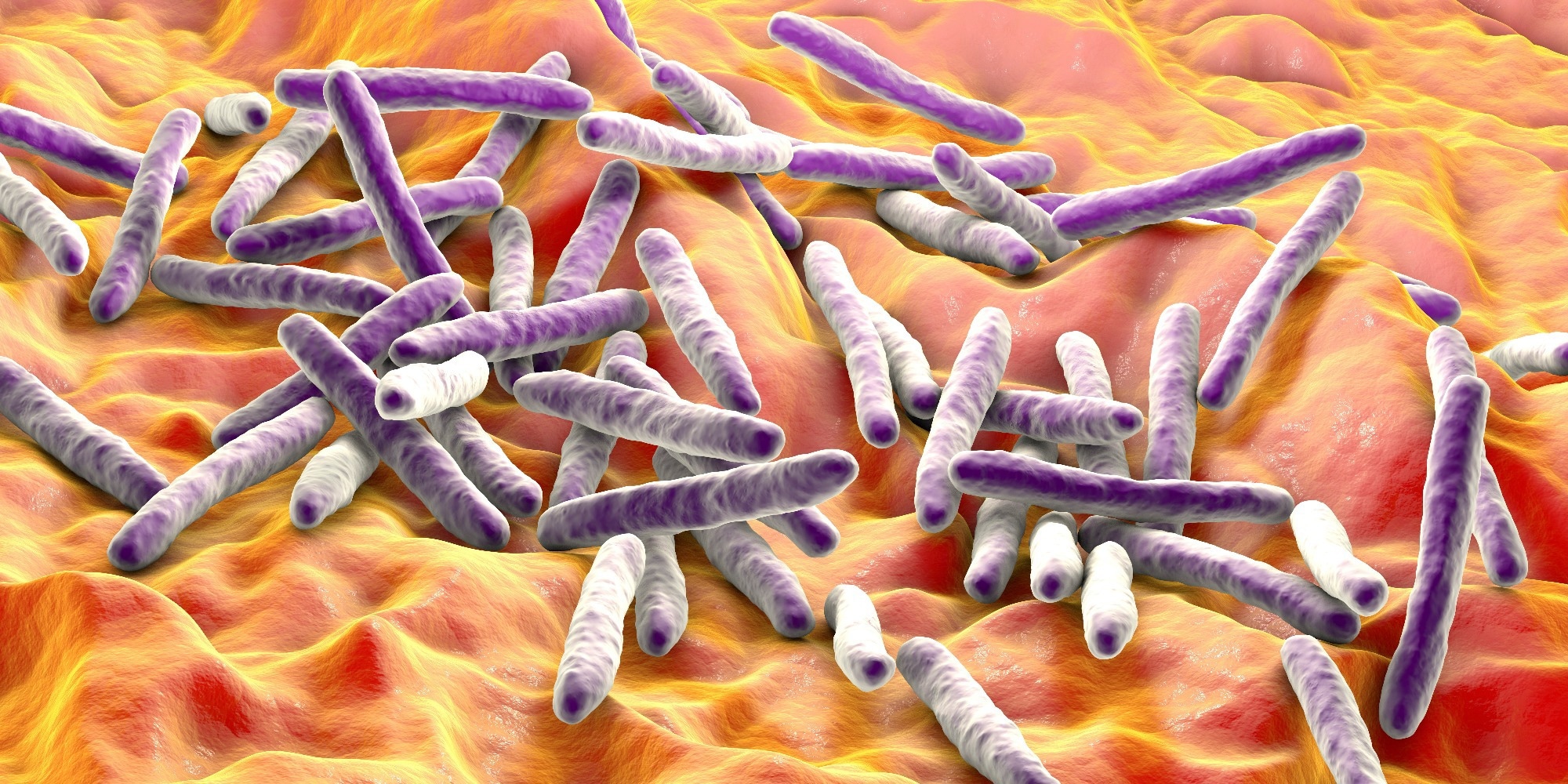A recent article published in the journal Molecular Cell discussed the findings of a study by Chai et al., which revealed that triple specificity protein phosphatase (ptpB) secreted by Mycobacterium tuberculosis inhibits pyroptosis and the release of cytokines by macrophages, allowing M. tuberculosis to invade the immune system.
 Study: Mycobacterium tuberculosis hijacks ubiquitin to inhibit pyroptosis. Image Credit: Kateryna Kon/Shutterstock
Study: Mycobacterium tuberculosis hijacks ubiquitin to inhibit pyroptosis. Image Credit: Kateryna Kon/Shutterstock
Background
Mycobacterium tuberculosis, the causative agent of the respiratory disease tuberculosis, caused 1.6 million deaths in 2021. Tuberculosis, despite being preventable and curable, is responsible for the second-highest number of deaths worldwide due to an infectious disease. Drug-resistant tuberculosis is an area of growing concern, especially in developing countries. Understanding the mechanisms through which M. tuberculosis evades the immune system is important for developing novel therapeutic methods to control the spread of tuberculosis.
Major findings
Chai et al. reported that the secretion of ptpB by M. tuberculosis results in an anti-inflammatory state that allows M. tuberculosis to bypass the host’s immune system. The evolution of M. tuberculosis in mammals resulted in the selection of genes that encoded effector proteins with eukaryotic-like functional domains. PtpB is one such protein that inhibits nucleotide oligomerization domain (NOD)-like receptors (NLRs) and the absence in melanoma 2 (AIM2) inflammatory pathways, both of which are essential for infection-related immune responses in mammals.
Both NLRs and AIM2 are involved in the secretion of pro-inflammatory cytokines such as interleukin 1β (IL-1β) and initiating inflammatory cell death. The cleavage of N-terminal fragments of gasdermin D forms membrane pores and releases inflammatory mediators during pyroptosis, a form of inflammatory cell death. PtpB inhibits gasdermin D pore formation, preventing pyroptosis and the release of cytokines.
PtpB causes the dephosphorylation of phosphatidylinositol-(4,5)-bisphosphate and phosphatidylinositol-4-monophosphate, which inhibits the localization of the N terminal fragment of gasdermin D. The study showed that a mutated M. tuberculosis with non-functional ptpB was more susceptible to macrophages. Furthermore, the dephosphorylation of the phosphatidylinositols by ptpB required ptpB to bind to the ubiquitin-interacting motif (UIM)-like domain in hosts, which was thought to induce a conformational change increasing the turnover of the substrate.
Experiments in mice with ptpB-mutated M. tuberculosis that had abrogated ubiquitin binding exhibited increased inflammatory responses against M. tuberculosis. Furthermore, bronchoalveolar fluid from these mice showed increased levels of inflammatory cytokines such as IL-18, IL-1β, and interferon-gamma (IFNγ), and lower bacterial loads were seen in the spleen and lungs. Experiments with gasdermin D-knockout mice did not show similar results or the characteristic pulmonary granulomatous lesions of tuberculosis infections.
The study by Chai et al. revealed that the release of inflammatory cytokines during the hijacking of the host’s immune system results in the formation of granulomatous lesions, which are an arrangement of phagocytes, lymphocytes, monocytes, and plasma cells, along with epithelioid cells. They form when immune cells attempt to engulf intracellular M. tuberculosis bacteria to limit the infection. Bursting of granulomas can trigger active tuberculosis. Human immunodeficiency virus, diabetes, and malnutrition can also trigger active tuberculosis.
Studies with Shigella have shown that gasdermin D is an important pathogen target and needs further investigation. The binding of ptpB to ubiquitin and the subsequent conformational changes can affect innate immunity. PtpB is a component of the current tuberculosis vaccine Bacille Calmette-Guerin (BCG), and the findings from the study can be used to improve the vaccine further.
Conclusions
Overall, the results from the study by Chai et al. revealed that the effector protein ptpB secreted by M. tuberculosis binds to ubiquitin in host cells and dephosphorylates phosphatidylinositols, inhibiting the cleavage of the N-terminal of gasdermin D. This prevents pyroptosis and the secretion of pro-inflammatory cytokines, allowing M. tuberculosis to escape the host’s immune system. The findings shed light on the mechanisms through which immune-evading tuberculosis might be infecting the host.